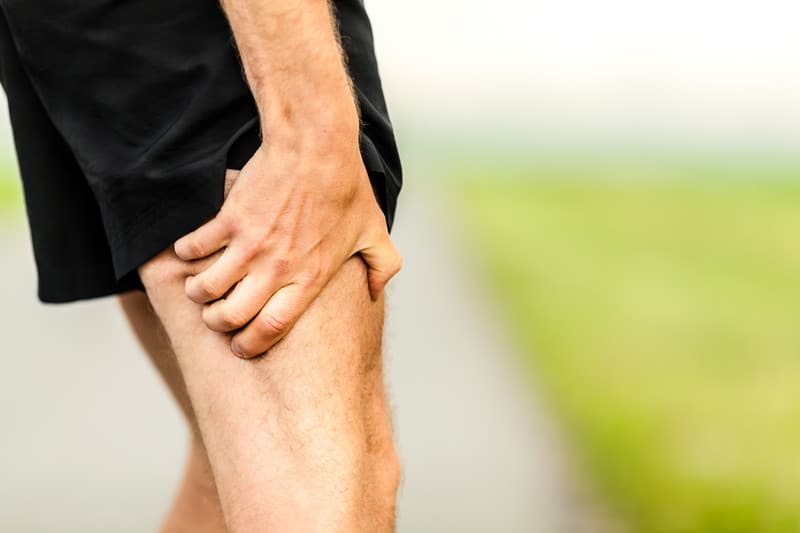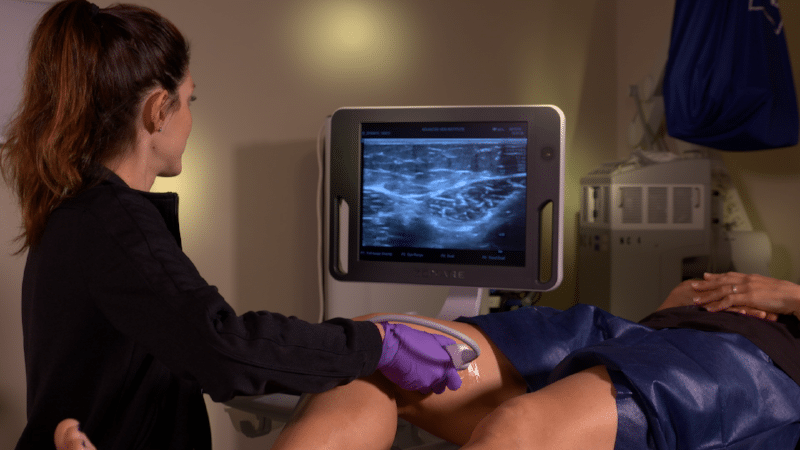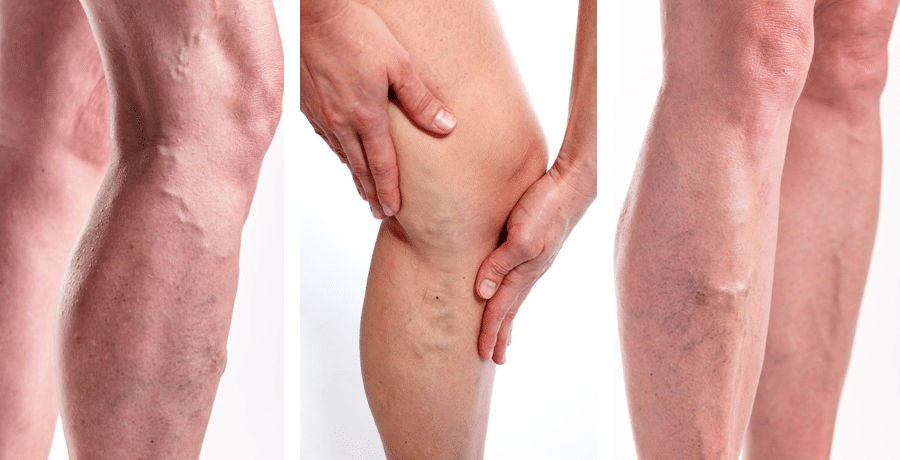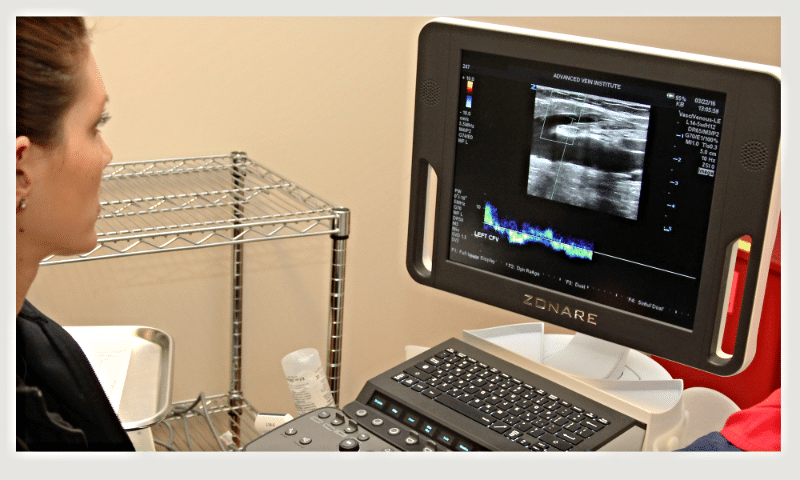Varicose Veins Symptoms That Can Save Your Life
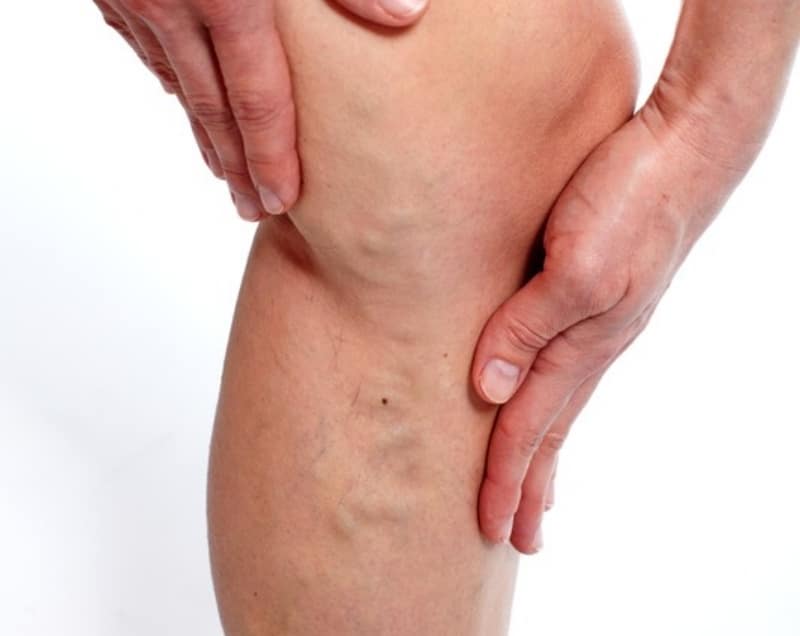 Vein disease is incredibly common in the United States. According to some estimates, 50-60 million American men and women have some form of venous disease. Varicose veins are among the most common of these.
Vein disease is incredibly common in the United States. According to some estimates, 50-60 million American men and women have some form of venous disease. Varicose veins are among the most common of these.
In fact, varicose veins are so common that it can be easy to forget that they could also be an indication of more serious health issues lurking beneath the surface. That is why it is a good idea for anyone with even the slightest sign of venous disease, including varicose veins, to at least consult a vein specialist to see whether they are at risk for more serious conditions, such as chronic venous insufficiency (CVI), leg ulcers, or worse.
Varicose Veins Symptoms That Could Be Life Threatening
Not all symptoms hold the same weight, however. It is rare, but it is not impossible for clots to form in the visible veins and move into the deeper venous system.
If your leg suddenly swells and becomes painful, hard, hot, and red, or if you experience lightheadedness, rapid pulse or chest pain, seek medical help immediately. A leg that swells suddenly can be a sign of a blood clot (deep vein thrombosis); accompanying chest pain and lightheadedness could mean the clot has moved into your lungs (pulmonary embolism or PE), which can be fatal.
When is it Time to Consult a Vein Specialist For Your Varicose Veins?
While not immediately life threatening, it is still very important that you do not ignore these serious indications of chronic venous insufficiency. If left untreated, the condition could lead to leg ulcers or even dangerous blood clots. Seek treatment if your:
- Varicose veins bleed
- Legs bleed after minor injuries
- Skin around veins changes color
- Vein hardens
- Skin on ankle and calf becomes thickened and discolored
- Veins or legs become itchy, dry or scaly
- Visible sores or rash-like areas on the leg, or near the ankle
- Dull aching leg pain that interferes with your daily activities
- Persistent leg fatigue
- A family history of clot-related conditions
In Short, Don’t Ignore any Symptom of Varicose Veins
There are other more typical symptoms of varicose veins. Even seemingly harmless symptoms should not be ignored. It may happen slowly, but vein disease is always chronic and progressive.
- Visibly twisted and bulging veins
- Enlarged purple veins
- Itching of the skin around veins
- A feeling of heaviness in the legs which often gets worse when standing or sitting for extended periods
- Mild swelling of the feet and ankles
Stephanie M. Dentoni, MD, a vein disease expert who practices at the California Vein & Vascular Institute in Stockton, California, has treated several people who thought they didn’t have significant symptoms when they, in fact, did.
“…They have learned to live with the discomfort and think it's a normal thing,” says Dantoni. “For some, it’s only when they are asked specific questions about leg discomfort such as if their legs ached at the end of the day, if they have a little bit of swelling, if their legs feel better when elevated at the end of the day, that they discover there is an underlying problem with their vein health.”
Who Should I Consult if I am Concerned about my Varicose Veins?
Not all vein clinics offer the same kind of expertise. Clinics that focus on diagnosing and treating venous disease of the lower limb will have more experience treating your specific condition and can offer you the newest and most effective procedures available.
Phoenix, Arizona Vein Doctor Nurse Practitioner Jilanne Rose, of Advanced Vein Institute of Arizona, has successfully treated thousands of individuals with varicose veins, spider veins, leg ulcers, chronic venous insufficiency, and other venous problems of the lower limb. She cautions that there are some primary care physicians who may tell patients that their vein symptoms are nothing to worry about, or that there is no point to treatment because the symptoms will just come back.
“Consequently, patients will go years without vein treatment, and then encounter a serious problem that’s much more difficult to fix,” she notes, adding that diagnosis and treatment of vein disease has progressed a lot in the last few years.
“For anyone with symptoms of varicose veins, even without physical discomfort or pain, it’s safest to take the ‘prevention’ route and see a vein specialist,” she urges. “An exam and duplex ultrasound can detect early signs of varicose veins, even those that may not be visible to the human eye.”
To find out if you are at risk for chronic venous insufficiency, or any other venous disease of the lower limb, download and fill out this assessment.
Want to speak with someone right away? It's really easy to talk to Jilanne at our vein center. Just call the office or schedule now get a conversation started about your symptoms and whether vein treatment may be needed.
You May Also Like: How to find the Best Varicose Vein Clinic for your Vascular Health; Deep Vein Thrombosis blood clots can be deadly but are preventable; Treatments and Intervention for Venous Insufficiency
DVT and Varicose Veins during Pregnancy Pregnancy is a risk factor for the development of a blood clots with an incidence that is 4 to 50 times higher compared to non-pregnant women. Increased risk for development of a blood clot is highest in the postpartum period, with the most common occurrence of clot formation in…
Read MoreDeep Vein Thrombosis and Travel Ready to enjoy some summer time travel? Make sure your trip is not shortened by a serious health concern. Small, cramped seating on an airplane, or sitting in a car for a prolonged period of time, may be more of a problem that just causing discomfort. Inactivity in a confined…
Read MoreIn the second of this educational video series, Jilanne Rose talks about the pain involved in various Varicose Vein Treatments. In some cases it’s negligible! Transcript The ease with which we can eliminate varicose veins depends solely on what type of underlying problems you have. That question can’t be easily answered until after a thorough…
Read MoreWhat is Restless Leg Syndrome Restless leg syndrome (RLS), also called Willis-Ekbom disease (WED), is a common sleep-related movement disorder characterized by an unpleasant urge to move the legs. Symptoms often occur during periods of inactivity; particularly in the evenings. This urge to move is sometimes relieved by moving ones legs. During sleep, most patients’…
Read MoreOur own Dr. Jilanne Rose answers questions on Varicose Veins, Spider Veins, Vein Treatments and Insurance Coverage for Vein Treatment in Arizona. Jilanne is a true Varicose Vein Specialist as she has years of education and has been trained by the top experts in the field. She has performed over 10,000 vein care procedures herself. This is one…
Read MoreRisks of Deep Vein Thrombosis Deep Vein Thrombosis (DVT), also referred to as Deep Venous Thrombosis, is a blood clot located within a deep vein, usually in the leg. A blood clot that breaks free and travels up to the heart or lungs is referred to as a Pulmonary Embolism (PE), which can stop blood…
Read MoreWhat Causes Spider Veins? For many people who suffer from spider veins, one of their biggest questions is “What causes spider veins?” Spider Veins, also known as telangiectasia, are small veins located just under the surface of the skin. Most often found on the leg, they can either be very small and hardly noticeable, or…
Read MoreAre varicose veins covered by insurance? The answer is YES, varicose vein treatment is covered by most commercial insurance carriers such as Blue Cross Blue Shield, Champus, Aetna, Cigna, Humana, Health Net, Tricare, UMR, and UnitedHealthCare to name a few. Medicare and AHCCCS will also cover treatment. Many people only try home treatment for varicose veins…
Read MoreAre all vein clinics created equal? No they are not! Med Spa – You can turn on the television or radio at any time of the day and hear countless advertisements for “quick” or “painless” vein treatments. Go to this clinic or that medspa, and they assure you that your legs will look great in no…
Read MoreAside from conservative therapies for vein insufficiency, when your symptoms get to the point that these no longer work, or you want a more permanent solution, there are several methods to treat vein disease. All of them, regardless of method, aim to improve circulation and minimize symptoms by eliminating the abnormal vein. These methods include…
Read More

